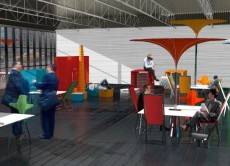November 12, 2013
Leading management bodies launch initiative to help employers value their talent
Measuring the value of an organisation’s talent and its people management practices has remained stubbornly elusive. This has prompted a group of leading professional bodies to join forces to help businesses measure the impact of their people on organisational performance and better equip them to improve workforce skills and productivity. The ultimate goal of the ‘Valuing your Talent’ initiative by the CIPD, the UK Commission for Employment and Skills (UKCES), the Chartered Institute of Management Accountants (CIMA), the Chartered Management Institute (CMI), Investors in People (IIP) and the Royal Society for the Arts (RSA); is to develop an open framework for the measurement of human capital that will make good people management practices more visible, and encourage businesses to invest more strategically in their workforces.


























November 13, 2013
Workplace Week highlights the changing shape of the office
by Richard Byatt • Comment, Events, Facilities management, Workplace design
‘High Street’ at Network Rail’s Milton Keynes base
This year’s Workplace Week which took place last week was a great success, with more people participating and more money raised for charity. Across the week, over 500 people took part, visiting innovative workplaces, attending the Workplace Week Convention or going along to one of the many Fringe events. Workplace Week is organised by Advanced Workplace Associates and supported by CoreNet Global, BCS, RICS, FMA and BIFM. All proceeds go to the Children in Need charity. Around 60 people joined the speakers at the headquarters of PWC on London’s Southbank for the Workplace Week Convention to discuss ‘Driving productivity through the connected organisation.’ The informal atmosphere and roundtable format encouraged participation, with a focus on developments in organisational design, change management and technology.
More →